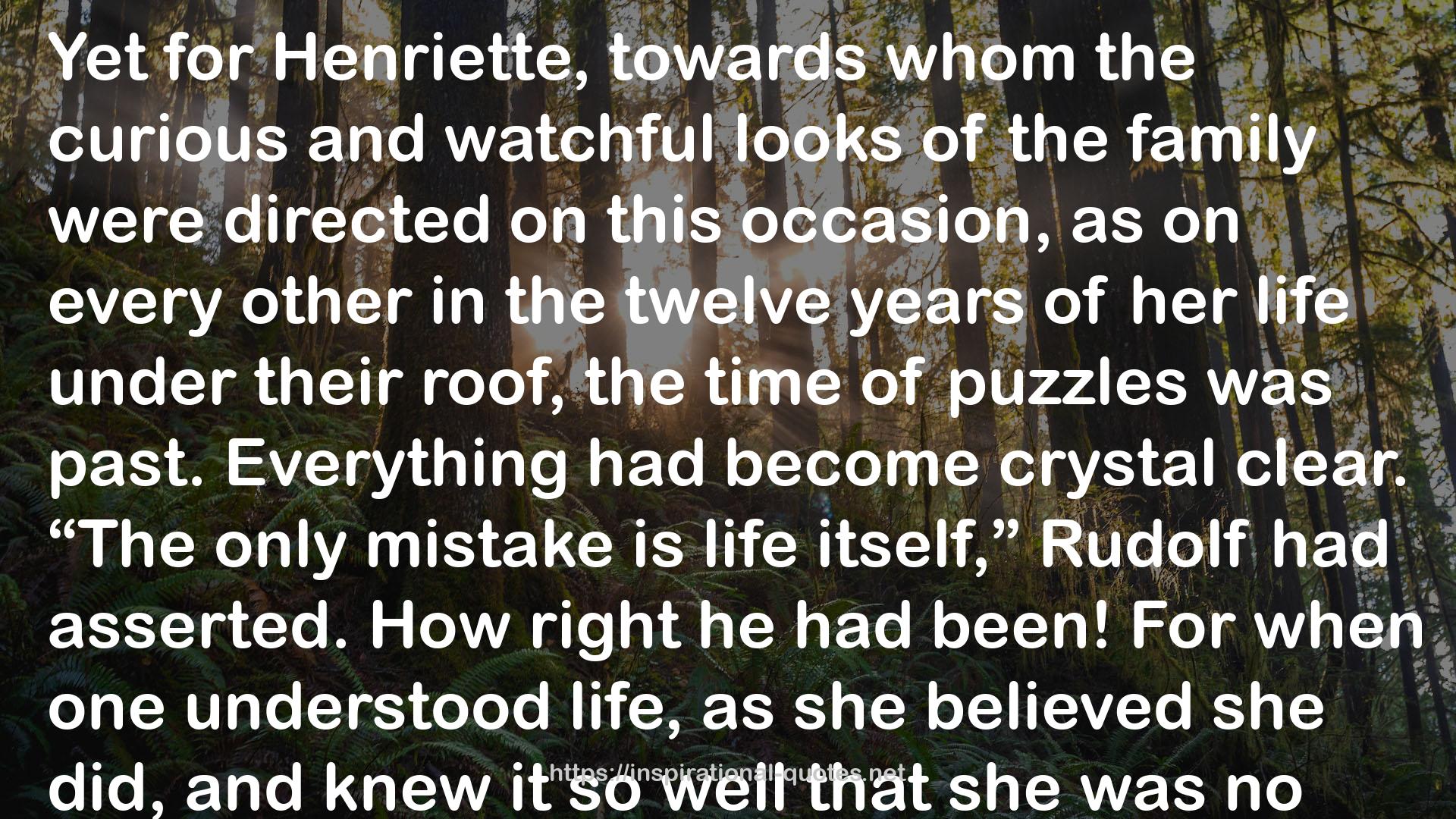" Yet for Henriette, towards whom the curious and watchful looks of the family were directed on this occasion, as on every other in the twelve years of her life under their roof, the time of puzzles was past. Everything had become crystal clear. “The only mistake is life itself,” Rudolf had asserted. How right he had been! For when one understood life, as she believed she did, and knew it so well that she was no longer capable of any illusions, it was not worth living. Henriette could not forgive Franz. No matter if her reason told her a hundred times that he had had nothing at all to do with Rudolf's death, that his suicide on her wedding day had been a pure coincidence, still her feelings whispered to her a thousand times the opposite. In any case, he had murdered Count Traun out of hatred, out of jealousy for the tiny bit of happiness which at last had fallen to her lot. “Where the house, which thou inhabitest, knows no rejoicing except that which comes from duty, and no joy except that from grace,” the suffragan bishop had said in his first address. That much Christl could have had at Number 10 too. Number 10 Seilerstatte knew no rejoicing, and it murdered happiness.
As her eyes rested on the girl who had renounced happiness, she knew that there was a connection between them. Some took the veil; others married men like Franz. Christl, too, had felt herself betrayed and bartered, and why? Because she simply could not forgive her, Henriette, the happiness she had sensed in her at the time of her own distress, when Hans had brought her from the ball to the colonel's deathbed. “I was frivolous enough to be happy at the wrong time,” Henriette thought. And during the “Veni, Creator Spiritus,” it occurred to her, How remarkable is the love human beings bear to one another! If Christl's love for me had been really great then must she not have said to herself: “I do not begrudge her this bit of rejoicing?”
The tenderness she had felt for the novice since the Jarescu days was now submerged by her conviction that the ceremony before the high altar was nothing else than a demonstration against her. “I believed in you and you destroyed my faith in human beings!” the girl in her white veil kept crying to her. Oh, she heard it well! "
― , The Vienna Melody
Image for Quotes

